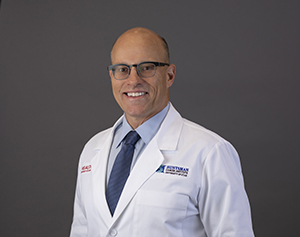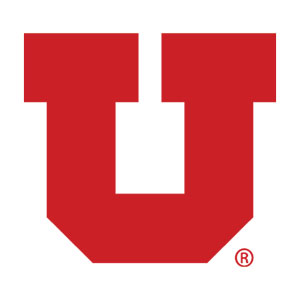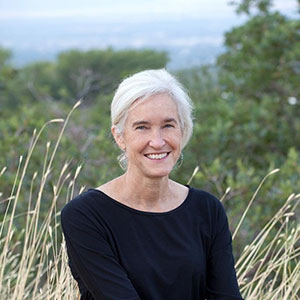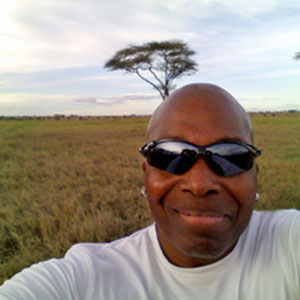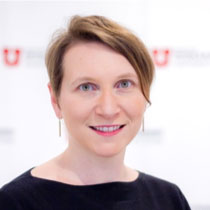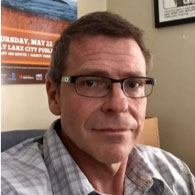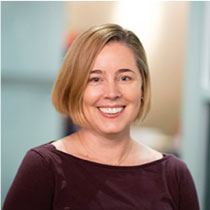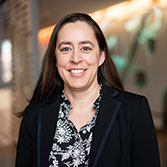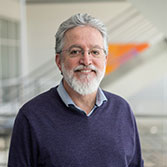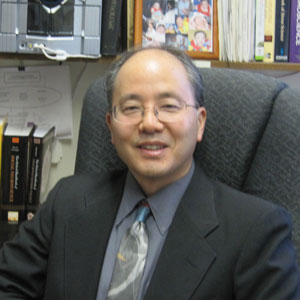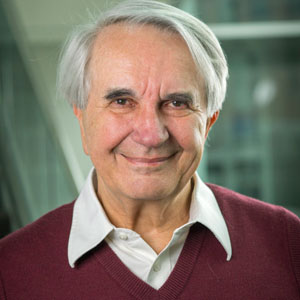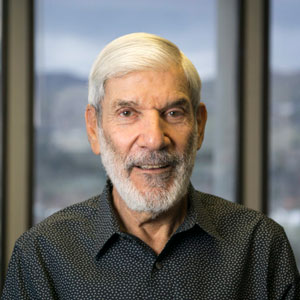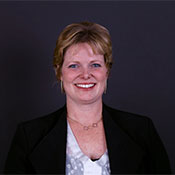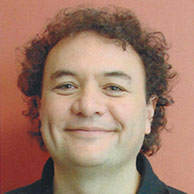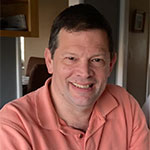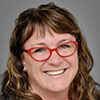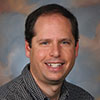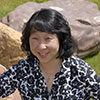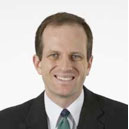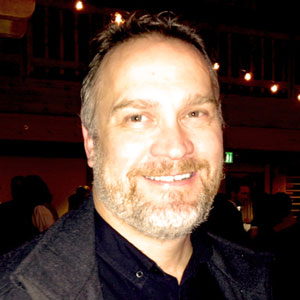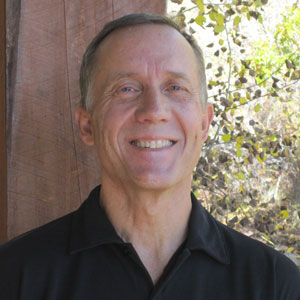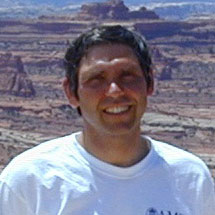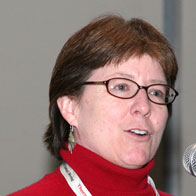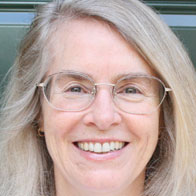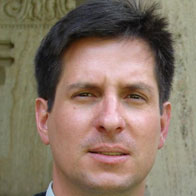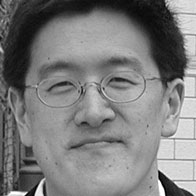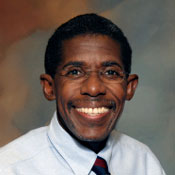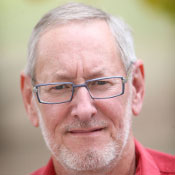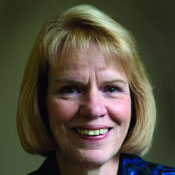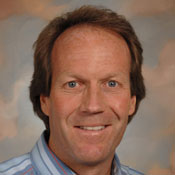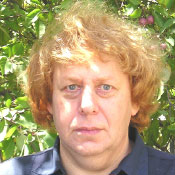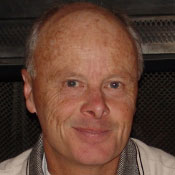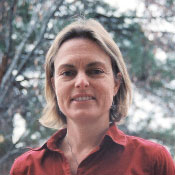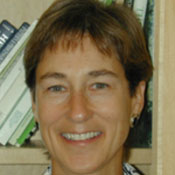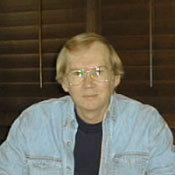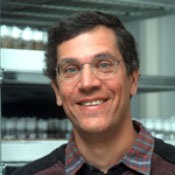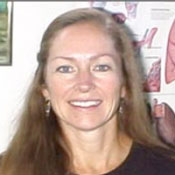Previous Distinguished Mentor Recipients
2025
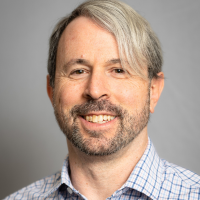 Matt Sigman, Ph.D.
Matt Sigman, Ph.D.
Distinguished Professor
Chemistry
Since starting at the University of Utah in 1999, I have mentored >150 postdoctoral, graduate, and undergraduate coworkers and our science has transitioned from a traditional, inward-looking research group to an extensive collaborative network with both academic and industrial teams (we currently work on >30 collaborative projects worldwide!). This means the team works on exceptionally diverse projects and the lab atmosphere requires collaboration and flexible problem-solving for successful project outcomes.
To navigate this complex workspace, I support trainees with three goals: 1) learning how to define and probe key scientific questions, 2) learning soft skills in science communication, and 3) identifying their own strengths and weaknesses for growth that are individualized. To achieve these goals, my research group has many structural/organization aspects that support mentee development. However, I would like to focus on how I personalize my mentoring strategies. As a mentee progresses, I work to learn about their background, innate skills (what is their superpower!), and general interests (both professional and personal). This is a time in life where many mentees are also discovering what excites them professionally and how to excel in a complex workspace, and each has their own path. I often point to my experiences and how I am still learning ways to be a better scientist, person, father, and teacher – I can confidently say I’ve learned from each person I’ve worked with. I discuss what I like to do outside of the lab, which I use to refocus and refresh. During every step of the process, I emphasize that success should be measured foremost by what can be learned that enhances their next steps. This process is iterative, and I encourage mentees to constantly reassess. Finally, I often sprinkle in humor to keep encouraging the team that being professionally ambitious does not require one to be serious all the time.
I often get asked why I dedicate so much time to my job by colleagues, friends, and trainees. There are many reasons, of course. However, I give one answer consistently: watching a mentee evolve over their time in my group and during their respective careers fills my bucket.
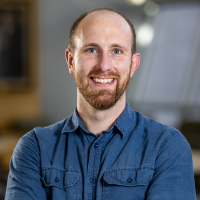 Peter Fino, Ph.D.
Peter Fino, Ph.D.
Associate Professor
Health & Kinesiology
My goal is to foster curious, creative, and collaborative scientists who excel in both their careers and in life. Mentoring students, postdocs, and research assistants has been the highlight of my career. Seeing them succeed, both as part of our team and after they graduate or start their next pursuit, is the most fulfilling part of my role as faculty. As a mentor, I believe that my role in setting an example and cultivating the team's culture is paramount—we do impactful and rigorous research, but we keep science fun. We encourage curiosity and the exploration of new ideas, welcome the opportunity to learn from mistakes, and recognize that we are all people first and scientists second. Sometimes that means taking a break and relishing the unique experiences of life (such as a great powder day in the mountains). I try to provide guidance, not answers. I try to foster a collaborative and team-oriented atmosphere, whereby every person is supported by all research team members and successes are shared and celebrated by all. Finally, I view mentoring as a two-way street; each mentee helps me continue to grow as a mentor. I am incredibly honored to receive this award, as it reflects the wonderful people that I have had the privilege to work with over my career.
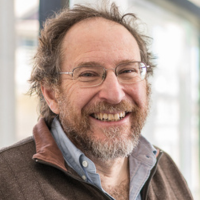 Aaron Fogelson, Ph.D.
Aaron Fogelson, Ph.D.
Professor
Mathematics
Seventeen PhD students have completed theses under my direction, and 2 more are working with me now. I have mentored sixteen postdocs (2 currently). All the students and postdocs with whom I have worked have been immersed in interdisciplinary research spanning mathematics and physiology. They have learned how to communicate very effectively with both mathematicians and life scientists.
I work very interactively with my PhD students and postdocs. We have individual weekly meetings (more when needed) and we have a weekly group meeting of all PhD students and postdocs working with me (and any others interested in participating). At the start, we read and discuss lots of papers together and I provide significant research guidance. As they mature, they become genuine collaborators and we mull over, discuss, and argue (constructively) about current research problems and directions. Papers we write are written collaboratively, with in person discussions of what story to tell and how to tell it.
I make sure that students receive credit (typically lead authorship) for their hard work.
In many cases, my evolving relationship with PhD students reminds me of my evolving relationship with my biological offspring, and some of the continuing relationships I have with former students, who are now colleagues and collaborators, have been among the closest and most intense and treasured I have experienced.
I advise starting students (before they have chosen a research advisor) that they should consider how their research interests, personalities, and working styles mesh with those of prospective advisors. I think these factors are paramount in the success of what is likely to be one of the students’ most intense efforts and closest working relationships in their young lives. I try to model good research, good mentor-mentee relationships, and ethical research. When in doubt, I look to guidance from the incredible mentoring I received from my PhD advisor.
2024
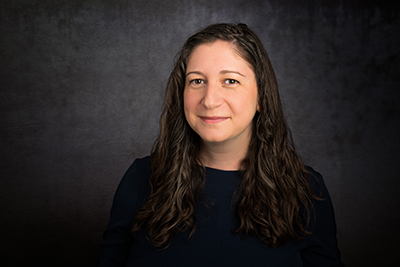 Elizabeth Tenney, Ph.D.
Elizabeth Tenney, Ph.D.
Associate Professor, Management Department
David Eccles Emerging Scholar
I see mentees as collaborators. I involve them in my research and then encourage them to branch out. As a mentor, I try to pass along information and provide training as a byproduct of working together. At the beginning of a mentor-mentee relationship, I do send students a document clarifying expectations and asking about their career goals so I know how I can be helpful. This helps me tailor my guidance and resources to best support their professional development. If they want to pursue a teaching track, I can support that differently than if they are aiming for a research professor job.
One of the most useful things I try to clarify up front is that red ink is my way of showing that I care, and I am trying to improve whatever I read, because giving and accepting criticism/reviews/suggestions is basically what academics do and thrive on, but it takes time to get comfortable with admitting that one can always improve one’s performance or do better. I also encourage open dialogue. Students do not have to accept all of my suggestions, but if they disagree, I encourage them to explain why. I say, “Remember- it is not personal. It’s about the project. This distinction is important.” A second aspect of my mentoring is trying to model widely endorsed Mertonian ideals of science with open science practices (e.g., posting our data to share with others, because science belongs to everyone). A third aspect is to celebrate the wins. The academic life involves a lot of ups and downs, wins and rejections, and it is important to have strategies to handle it all. Sometimes we have data we do not find convincing or do not understand (see advice on when to drop a project in an article my team and I published, here: https://www.nature.com/articles/d41586-024-00812-3). Eventually the reviewers’ concerns have all been met, a paper is accepted, and it’s time to celebrate. My favorite memory of this high point is when my team went to Tulie bakery, and the four of us consumed a whole cake. I am grateful that I learned the importance of celebrating publications from my mentors and hope to do a lot of it as my mentees master the steps towards becoming experienced and enthusiastic professionals.
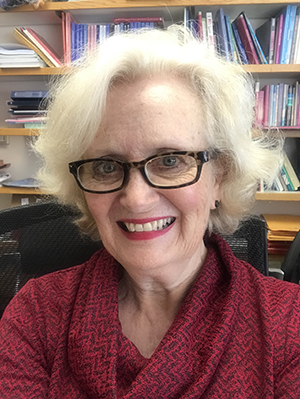 Mary Ann Christison, Ph.D.
Mary Ann Christison, Ph.D.
Distinguished Professor of Linguistics
Auxiliary Professor, Urban Institute for Teacher Education
Throughout my career in higher education, I have experienced great joy in mentoring graduate students and postdoctoral scholars. It is such a pleasure working with young academics and supporting them in achieving their goals. I have always considered mentoring and working with graduate students and postdocs to be my good fortune. To talk about my philosophy of mentoring is not easy because my philosophy of mentoring is always evolving. It is based on what I have learned as a mentor, and I am always learning. Having said that, I also recognize that there are a few principles that underpin my approach to mentoring. Perhaps the principles could be construed as my philosophy as they have been stable for many years. At the core of my practice as a mentor is developing mutual respect. I try to get to know who my mentees are as individuals and what they value. We talk about their educational and personal experiences, the challenges they have faced, and their successes and individual achievements. It takes time, but little-by-little we learn about each other so that we build our professional relationship on a foundation of trust and respect. Another key principle that has surfaced in my career as a mentor, is the importance of modeling. I did not start out trying to be model for my mentees nor did I think that I was serving as one. In hindsight, I recognize that I just did things a certain way because they seemed right and fit with my core values. To be honest, I have no idea what event or experience brought modeling to my attention, but one day, I noticed that my mentees had taken up many of the practices that I valued. Some of these were demonstrated in the way they approached their work and research, but others were reflected in their interactions with peers and colleagues. When I recognized this fact, it gave me great pause for reflection as I realized the unintentional power that mentors can wield. This realization cemented the notion that respect and trust were even more important in my overall approach to mentoring than I had previously thought. The last piece of the mentoring puzzle, which I now view as core to my approach to mentoring, is perseverance. All mentees will have challenges and disappointments in both their personal and professional lives. I always tell them, “Never give up.” If a journal article we co-author together gets rejected, I focus on the valuable feedback that we receive in the process. If they apply for awards or fellowships and do not get them, I remind them that they will never receive awards or fellowship if they don’t apply for them. Higher education is full of both challenges and opportunities. The work of mentors is to prepare graduate students and postdoctoral scholars to recognize and face the challenges while at the same time encouraging them to rejoice in their successes and opportunities.
2023
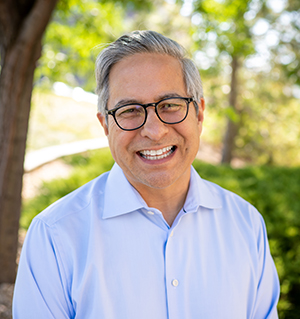 Kent Ono, Ph.D.
Kent Ono, Ph.D.
Professor, Communication
Like so many others who have won this award, the way I approach being a mentor is modeled, in part, after the amazing mentors I have had. I, like them, have chosen to “pay it forward” through mentorship. Before I take on an advisee, we have a series of conversations. I tell them that mentorship is a “two-way street”: that is, while I have responsibilities as the mentor, they, too, have responsibilities as a mentee. During my education, I did not have access to an Asian American mentor, so I had to invent my own methods and hone my mentorship skills by watching faculty of color and white faculty mentor students. I also proactively sought out mentors who were already doing impactful work, and they helped pave the way for me, in both ways I know and in ways I will never know. Now, as a mentor, I know how much work a mentor does “behind the scenes.” While some of that work is visible to mentees, they rarely see the entirety of what happens backstage, even as they experience and benefit from it. One of the rarest and most precious of pleasures is to see my mentorship efforts help people blossom in their lives and careers.
I am committed to viewing my current and former mentees as whole people, with lives that extend beyond my awareness. I try to help prepare them for a reflective life, for life-long learning, for challenges, struggles, and obstacles they will face, as well as for academic and non-academic careers. I help them create their “academic home” by forging short- and long-term networks, including seeking out other mentors. I host gatherings of current and former advisees to unite new scholars with old ones, thereby expanding their networks. Another thing I convey from the start is that mentorship is for life. The full weight of that statement rarely registers at first, but years (and sometimes decades) later mentees recall my having said that. After all, I have so many more lessons to offer than I have time to share with them when they are in school. The fact that mentor/mentee relationships are part of my job is incidental; for me, they are what it means to be an educator.
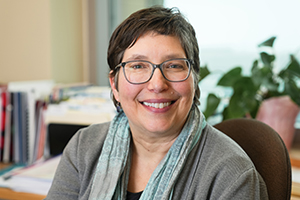 Katharine Ullman, Ph.D.
Katharine Ullman, Ph.D.
Professor in the Department of Oncological Sciences
Adjunct professor in the Department of Biochemistry
A few basic principles have guided me in striving to be an effective mentor. One is the importance of respect. Every mentee has valuable knowledge and opinions. When they know you value their input and perspective, this provides a foundation for productive discussion. I’ve also learned to meet people where they are – students and postdocs have a variety of needs and a variety of competencies, and these change over time: treating each trainee with their individual situation in mind is important. Over the years, I have modelled the behavior that I hope to see in my mentees. This has not always been intentional, but I have become more aware of its power, whether demonstrating respectful conversation or an ability to persevere under stressful circumstances. Finally, I have found that people often rise to expectations, so setting and reinforcing ambitious (but tailored!) expectations can be empowering.
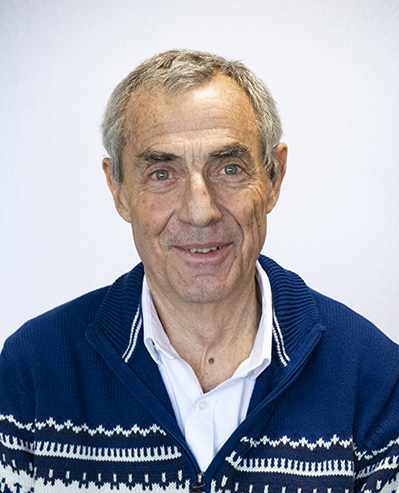 Dennis Parker, Ph.D.
Dennis Parker, Ph.D.
Professor in the Department of Radiology and Imaging Sciences
Professor in the Department of Biomedical Informatics
Adjunct professor in the Department of Bioengineering
I am humbled by this honor. My philosophy and method of mentoring has been greatly affected by the mentors in my life, starting from 7th grade English, through high school, college, and graduate school. Each of them found joy in the accomplishments of their students and the personal touch was contagious. It was in college that I realized I wanted to teach – I already knew I wanted to do research. Mixing teaching with research required developing a mentoring style that supported the student while at the same time supported the requirements of maintaining a research program on soft (outside) funding.
With desires for mentoring tempered by this survival mode, I would list several points: 1) First and foremost I really like every student I have worked with and despite needing their accomplishments (papers, etc.) to maintain a funded research program, I have always wanted them to find their passion in life. Selfishly I have encouraged that passion towards all that can be done with medical imaging. 2) I have strongly encouraged independent thinking. I learned early on not to trust my own knowledge or that of others, but to doubt and test and discuss. I encouraged students to test my suggestions and thereby come up with their own ideas and solutions to problems and discuss those with me. Students that wanted to be told what to think, found this disconcerting, but essential to their growth. 3) I have always encouraged students to take responsibility for their own work and have supported them to present their work atour national and international meetings and 4) (selfishly for maintaining funding), to be prolific in publishing papers J 5) I have tried to maintain a high standard for their papers and other requirements towards graduation. This has often meant repeating experiments over and over until meaningful results are obtained – and 6) in testing hypotheses, to not have a desired outcome but to look for factual results, unbiased by any personal interest. 7) where possible I have involved students in writing our grants and as much as possible in applying for their own funding. 8) And finally, when they have finished their degrees, where possible I have encouraged them to stay for postdoctoral work while looking for their ideal position.
2022
Donald Ayer, Ph.D.
Senior Director of Cancer Training and Career Enhancement at Huntsman Cancer Institute (HCI).
Professor, Oncological Sciences
Over the years I have had the privilege of working with trainees that span the education continuum, from high school students through junior faculty. Helping others achieve their career goals is both personally and professionally rewarding. In fact, a success for a one of trainees/mentees is more gratifying than a personal success. I have benefited from excellent mentors as I have followed my career path. To be sure, I have also benefited from some less stellar mentors along the way as they have shown me what not to do. I view mentorship, not as a task, but as an opportunity to help trainees find their path, navigate roadblocks, and make progress towards a fulfilling and meaningful career. It is critical to meet students where they are, providing a safe and non-judgmental environment, where they can share their hopes, but also their fears and insecurities, as they navigate their academic journey. Over the years, I have come to appreciate that mentorship is not a “one size fits all” exercise. Rather, we have all have different strengths and weaknesses and being able to communicate in an open and honest manner is where the mentor-mentee magic happens.
Leslie Francis, Ph.D., J.D.
Director, Center for Law & Biomedical Sciences, College of Law
Professor, Law/Philosophy
Over my many years at the University, I have mentored many different students: law students, graduate students in philosophy, graduate students in other fields, and undergraduates. As a mentor, I believe in meeting students where they are and fostering their abilities to shine. My work as a mentor is to help students visualize possibilities, learn difficult material, and appreciate different approaches and points of view. My students have diverse backgrounds, interests, abilities, and goals. Some practice law in big firms while others work in the public or non-profit sector, establish their own practices, or use their legal training in fields such as human resources or medical research. Some have become academic philosophers leading the way in fields as diverse as environmental ethics, research ethics, black bioethics, and disability law and ethics. Some use their philosophical training in business, law, or medicine. Some teach in philosophy departments at universities, others in community colleges, and others in medical schools or business schools. I am delighted by their many forms of success.
I have been privileged myself to have had amazing women as mentors. Ruth Anna Putnam was the philosophy professor at Wellesley College who convinced me that I could flourish in a then largely male-dominated field. Jean Austin at Oxford University lived two different lives, first as a wife and mother and then as an academic in philosophy. Justice Ruth Bader Ginsburg had just joined the United States Court of Appeals for the D.C. Circuit when I clerked there and served as mentor and role model for all women clerks that year whether or not they worked for her. All three showed me the possibilities of intertwined happiness in professional and personal life, albeit in quite different ways. Each believed in the importance of changing the world in which they lived for the better. They mentored mentoring for me, and I hope I have passed at least some of this on to my colleagues and my students.
Helene Shugart, Ph.D.
Professor, Communication
Excellence in scholarship, regardless of discipline, is characterized by intellectual rigor, complexity, depth, and insight; and, to those ends, the habits of intellectual curiosity, engagement, and resilience. Paradoxically, while these qualities and practices represent the ideals to which undergraduate and, especially, graduate, and post-graduate education aspire, they are exceedingly difficult to teach; the hope or expectation is that students will absorb these scholarly conventions over the course of a curriculum, a degree, or a research appointment. This is not always the case, however; on the other side of a degree, the difference between a well-educated graduate and a scholar is almost always the number and kinds of intensive and, importantly, explicit opportunities students have had to observe, understand, and practice—and, sometimes, fail—these scholarly standards, conventions, and habits, irrespective of content. Mentorship, whether individual or programmatic, invariably consists in creating and overseeing those opportunities for students and, crucially, in modeling them. Where students go with these skills ought not to be the point of academic mentoring, especially given the ever-changing landscape of higher education. A mentor's overarching responsibility is to impart rigorous, thoughtful, and capacious practices of intellectual engagement that will serve students in and productively contribute to any professional context or endeavor.
2021
Lee Ellington
Professor and Robert S. & Beth M. Endowed Chair
Nursing
I am grateful to the many mentors throughout my career for believing in me and supporting my professional and personal growth. My mentors have inspired me and I find mentoring a very rewarding experience. My intention is to develop a deep understanding of all mentees—their goals, aspirations, what motivates them, and what challenges they believe they face. I have had the privilege to work with many students, post-doctoral fellows, and junior faculty. Each has been unique. I try to create an environment with scaffolding where they can reflect, create, reach and learn from mistakes. I believe there are times in mentoring relationships to be seriously focused on working towards a goal and times to laugh, have fun all the while still steadfastly focused on reaching a goal. I highly value helping mentees make connections with other mentors, potential collaborators, and to gain confidence in building and thriving in their emerging professional network. The greatest reward is to at some point “get out of the way” and watch in wonder at what they create and the challenges they successfully navigate. I am continually learning how to be a better mentor from my mentees and from my colleagues. I am honored to receive this award and want to express gratitude to all the remarkable mentees who have impacted my life both personally and professionally.
Laurence J. Parker
Associate Dean
Honors College
Professor
Educational Leadership & Policy
I believe that as faculty, the teaching, research and service we do at the University of Utah and in higher education overall, should be dedicated to high quality research mentoring and professional development at both the graduate and undergraduate levels. It is important for us to create and foster relationships with graduate students that will lead to research, teaching and community engagement career and life goals. This type of mentorship can take many forms, from formal meetings, to individual sessions, or to efforts to socialize graduate students and have them take intellectual ownership of their work. All of this with the purpose I have argued for which is that we must disrupt the normalization of student failure that has become too widely accepted and assumed in our K-12 schools, undergraduate and graduate education. Our mentorship must disrupt this norm.
One of my mentors William Trent at the University of Illinois at Urbana-Champaign gave me valuable advice as I finished my dissertation and was soon about to begin my academic career as an assistant professor at Temple University. He said, “One of the purposes of being a faculty mentor is to eventually see your students do better than you. Then you will know you have been a good mentor.” I truly believe that all of the students I have worked with have indeed done this, and I am thankful and honored to have worked with them and look forward to creating future mentoring pathways with new students.
Wanda S. Pillow
Professor and Chair
Gender Studies
2020
Pearl Sandick
Associate Dean for Faculty Affairs
Science
Associate Professor
Physics and Astronomy
I am grateful to the many mentors throughout my career for believing in me and supporting my professional and personal growth. My mentors have inspired me and I find mentoring a very rewarding experience. My intention is to develop a deep understanding of all mentees—their goals, aspirations, what motivates them, and what challenges they believe they face. I have had the privilege to work with many students, post-doctoral fellows, and junior faculty. Each has been unique. I try to create an environment with scaffolding where they can reflect, create, reach and learn from mistakes. I believe there are times in mentoring relationships to be seriously focused on working towards a goal and times to laugh, have fun all the while still steadfastly focused on reaching a goal. I highly value helping mentees make connections with other mentors, potential collaborators, and to gain confidence in building and thriving in their emerging professional network. The greatest reward is to at some point “get out of the way” and watch in wonder at what they create and the challenges they successfully navigate. I am continually learning how to be a better mentor from my mentees and from my colleagues. I am honored to receive this award and want to express gratitude to all the remarkable mentees who have impacted my life both personally and professionally.
William Smith
Professor and Chair
Education, Culture and Society
Professor
Ethnic Studies
I believe the key goals in being a successful mentor are to understand that there is unfinished business that needs to be done, unlimited (and maybe untapped) potential in people to accomplish this work, be receptive to the best information available (even if it conflicts with your previous beliefs), and believing that being a service to humanity is bigger than one person’s job to complete. Mentors can be found in the most unlikely places and from a diverse set of people with varying experiences. I have been privileged to have mentors who have invested in me, and continue to, throughout each stage of my life. One of my mentors, Dr. Phillip J. Bowman, recently encouraged me to consider these words, “as elders, let us continue to be thankful for both our intergenerational mentoring roles and the inspiration we receive from each new generation.” I have received valuable advice and growth from people who have freely invested their time and experiences with me. For instance, the janitorial staff in my building shared personal anecdotes about the limited reach of academic opportunities and scholarship information and exposure in their communities from postsecondary institutions. These stories motivate me to be a wiser and more informed person. Important influences also come from former and current students who encourage me to be more aware of various ways people experience psychosocial phenomena like gendered racism inside and outside of higher education. To be sure, my greatest influencers have been the previous generations of “ordinary” people who have been the backbone of our society and fighters for civil and human rights. Their advice and examples have been immeasurable in my development, and Gwendolyn Smith, my mother, a retired Chicago Public School teacher is at the top of this list. These are the ingredients that I bring into my role as a mentor who carefully listens, tries to develop a trustful environment, who listens to influencers, and then tries to respond in an effective manner where one can benefit from my insight. Dr. Bowman is a person who listened to my early developmental theories as a graduate student and he acted as if I was the only person who had access to his valuable and limited time. Later, I learned from the stories of many other people that they felt the same way about him. Consequently, my primary goal has been to make sure that if people bestow the title of mentor upon me, then I want them to have my full attention and dedication to their success. I am fortunate to be able to exercise this practice in the African American Doctoral Scholars Initiative Program, a recruitment, retention, and mentoring project that Drs. Paula Smith, Laurence Parker, and I created at the University of Utah. This has been a very rewarding mentoring experience for each of us. We hope this program will successfully nurture, mentor, and graduate more Black scholars from every graduate program at the university.
Gregory E. Smoak
Director
American West Center
Associate Professor
History
After teaching at three different universities and a community college as well as directing numerous collaborative community-engaged public history projects over the past three decades, I have become firmly convinced that we must demystify the profession of history, pull back the curtain so to speak, for our students. At the graduate level demystification entails professionalization. In the classroom this demands greater attention to deeper historiography. I am constantly struck by how little we teach the history of our own profession. In many cases graduate seminars are focused only on the “latest and the greatest” scholarship, apparently assuming that graduate students will absorb the rest through osmosis. While it is absolutely essential that graduate students are conversant with the most current scholarship, I firmly believe that they should also know the foundations of that scholarship. For this reason, I devote the first few weeks of my reading seminars to the deeper historiography of the given field.
More importantly, professionalization must also take place outside of the classroom. Even if we do a good job teaching our students methods and theory, we must go beyond that academic base and prepare them to be working professionals. Modeling good professional behavior is a start; membership in professional organizations, conferences going, attending job talks and the like. But it is even more critical to expose our graduate students to the many career options for historians and provide them opportunities to garner experience in these areas. The projects we undertake at the American West Center give graduate students real-world experience doing applied history and public humanities. Moreover, I ensure that AWC graduate assistants are exposed to the daily operations of the center and learn about the process of acquiring contracts and grants as well as the demands of project management. My goal is for my students to leave our program as professional historians no matter what career path they follow.
Shelia E. Crowell
Associate Professor
Psychology
2019
Amy Barrios
Professor
Medicinal Chemistry
My PhD mentor often said that the title “Professor” really means “professional student” (C&EN 2013, 91(23), 5). As a professional student, I am excited to embark on a new journey of discovery and professional development with each of my coworkers. I try to lead by example, promoting honesty, integrity, laboratory safety and a healthy work-life balance. In the laboratory, I encourage each student to take ownership of their project, providing scaffolding, advice and troubleshooting when necessary but ultimately letting each person design their own path. I provide opportunities to practice key skills including oral presentations, literature analysis and scientific writing and encourage participation in conferences, internship experiences and travel to work with collaborators around the globe. Finally, I try to help make connections with potential collaborators, career advisors and other mentors. I am grateful to have the opportunity to work in academia and continue to learn and grow alongside outstanding colleagues. I am honored to receive this award and dedicate it to the many amazing mentors and trainees who have touched my life.
H. Joseph Yost
Professor
Neurobiology & Anatomy
I am deeply committed to successfully training the next generation of biomedical scientists for three reasons: First, I have the privilege of enjoying a wide range of academic pursuits due to the efforts of the previous generation, of my own generous mentors, and of a wide team of colleagues. I feel the responsibility to pay it forward. Second, rigorous intellectual training in the sciences, with its accompanying (and frequently humbling) reminders of truths outside ourselves, serves as an important counterbalance when culture seems to have gone off its rails. Third, the practice of science can be invigoratingly creative, most often when it is seeded by insights from individuals and teams with a wide range of perspectives. We get to see things and ideas that have never been seen before, and share them with others. Supporting diversity in biomedical sciences requires a significant investment of time, resources, and energy. It requires focusing on each individual, listening to and understanding their unique strengths and weaknesses, encouraging them to learn how they can flourish with their own talents and aspirations, fostering their professional growth, and occasionally running interference for them through a sometimes-nasty maze of obstacles. Most importantly, it requires us to accept a standard of excellence that goes beyond the simple metrics of grant-dollars and publications; scientific creativity that arises from a unique perspective does not always translate into enhanced “productivity,” but is critical if the discoveries of tomorrow are to transcend the status-quo of today.
Although one-on-one training experiences are often the most personally rewarding, successful mentorship also requires building professional research and educational infrastructures that will allow a larger number of diverse individuals to have opportunities to enjoy the practice of science. At the beginning of the pipeline, our BioEYES outreach program brings zebrafish projects to 4th-12th grade students in local schools with underrepresented populations, encouraging students to believe that it is fun to do science, and most importantly, that they can be scientists. Our new NIH R25 Genomics Summer Research for Minorities (GSRM) program provides underrepresented minority undergraduates an opportunity to explore careers in a burgeoning field. Our NIH T32 Developmental Biology Training Program and American Heart Association Strategically Focused Research Network program provide research fellowships and enriched mentoring environments for predoctoral graduate students and postdoctoral (PhD or MD) fellows to enhance their career development and pursue new interdisciplinary research projects in several departments across the campus. Providing opportunities for high-quality, mentored research, from grade school through graduate school and postdoctoral programs, promotes the unique form of scientific creativity that only arises from a true diversity of perspectives.
David Young
Professor
Clinical Pharmacotherapy
I have been very fortunate throughout my career to have had numerous mentors spend countless hours on my behalf. I am thankful for all of their advice, support, encouragement, and examples as nonpareil clinician educators. I will never be able to repay my mentors for what they have given me, but I can pay it forward to the next generation of pharmacists. As a result, I strive every day to make a difference in each of my student’s lives. I have had the tremendous responsibility to mentor a plethora of Doctor of Pharmacy, post-graduate year one, and year two students throughout my tenure at the University of Utah College of Pharmacy.My approach to mentoring is one of autonomy, trust, respect, persistence, and determination. The core theme of my mentoring philosophy is to support my students along their independent journeys in attaining their goals and reaching their highest potential. I believe that this can be best achieved by creating a learning environment that provides both autonomy and structure (i.e. structured-autonomy). I encourage my students to seek out answers to questions on their own, while I provide guidance based on their individual needs. This allows for both my students and myself to learn at a much deeper level, as I actively listen to each of my students and adapt to their individual needs. As a result, we develop a relationship built upon trust and independence. This developed trust increases my students’ confidence in their own abilities, namely who they are and who they want to become. I am passionate about obtaining new skills and knowledge. Subsequently, I hope to inspire my students to become life-long learners, and vehement in all of their pursuits. One of the greatest challenges and rewards of being a mentor is to help my students build upon their strengths, and refine areas of improvement in order to reach their full potential. Each student possesses unique talents and areas of development, so I strive to aid them in their individual growth and achievement.
I am persistent and determined in all of my academic and clinical activities. Calvin Coolidge stated “Nothing in this world can take the place of persistence. Talent will not; nothing is more common than unsuccessful men with talent. Genius will not; unrewarded genius is almost a proverb. Education will not; the world is full of educated derelicts. Persistence and determination alone are omnipotent”. Our world today is filled with frequent examples of immediate results. Therefore, I hope to instill a sense that many opportunities in life come from persistence, determination, and patience. I am humbled and grateful to all of the students who allowed me to be a part of their journey, and who I have mentored and/or precepted throughout my tenure at the College of Pharmacy.
2018
Elizabeth Clement
Associate Professor
History
When I agreed to chair the University’s Diversity Committee, I accepted a charge to research and develop a mentoring program for diverse faculty. The ensuing research clarified a number of important insights that have shaped my approach to mentoring of both students and junior faculty.
The first of these relates to the idea that mentoring should come from a network of supporters. Rather than rely on one mentor for all aspects of our work, the recent research on mentoring indicates that students and faculty should put themselves (rather than a single mentor) at the center of their mentoring network. They should then assess the various tasks they need help with and fill out their network with people particularly well suited to support them for each task, rather than seeking a single person to meet all their needs. This reduces the time commitment of being a mentor while providing the mentee with a range of opinions, strategies, options, and in the end more helpful advice. This is particularly important because, as I learned during the process of developing the mentoring program, peer mentoring is actually more effective than hierarchical one-on-one mentoring. Thus, in addition to finding mentors amongst faculty, graduate students should also seek out and cultivate networks of support amongst their peers.
The second is that mentoring also involves providing a range of resources. I ask students and junior faculty what they think they need, and I fight to get those resources from them. Sometimes what they want is my time and attention, but often, in the resource-starved Humanities, that also involves fighting for funding—be that fellowships, grants, or paid work opportunities.
Finally, the data is very clear that white men prefer to mentor people who look like them. This is an enormous problem in the context of diversifying academia, as it has two serious negative consequences. First, it means that white men tend to only mentor other white men. Since white men still hold most of the important positions in Universities, women and people of color have less access to the people who control resources, know the institution best, and can provide good advice about navigating the complex system that is academia. Second, this overtaxes women and people of color, who end up having to mentor everyone else. This of course has an impact on the time they can spend on their own work, which, in turn, keeps them from moving into higher positions in the University from which they can advocate for all students and faculty. This is not to say, of course, that I don’t mentor white straight men. I do it all the time, and with great success. But it does mean that I am very careful to actively offer mentorship to people who do not look like me, particularly as a white queer woman, people of color.
Mentoring people who don’t look like me has also benefited me personally and professionally. I have learned an enormous amount from people of color as peers and as mentees. They bring perspectives and insights about our world that my own experiences as a white woman would not produce, and I am both smarter and more effective because of my ongoing interactions with them.
Mike Kirby
Professor
School of Computing
From my perspective, the goal of mentoring is not to create a replica of myself. The process is far more nuanced than that. I certainly want to instill the “best practices” of our trade, which in the case of academia consists of things like critical thinking skills, rigor and reproducibility, and the formulation and communication of ideas. In these things I desire “do as I do”. There are, however, a lot of things that are a function of “style” – my particular perspective on doing research. For each of the 30+ students (postdocs, graduate students and undergraduates) whom I have mentored, my goal has been to walk along side them through various research endeavors and demonstrate how I would go about doing things. In the early stages of their studies, this normally consists of directing them in research. As they mature, this adapts into providing them alternative viewpoints on their (self-formed) plan of action. The goal is for them to take on the best practices while developing their own unique style of research and enquiry. Mentoring is a very rewarding experience for me, seeing each one of my students develop their own innate talents, abilities and style.
Bert Uchino
Professor
Social Psychology & Health Psychology
I have been extremely fortunate to have wonderful mentors in my life as a high school (Mike Chinen), undergraduate (John Balogh), graduate (John Cacioppo), and postdoctoral (Janice Kiecolt-Glaser) student, and as a faculty member at the University of Utah (Tim Smith). As a result, I decided long ago that I could make a bigger and more meaningful impact on the field by fostering the career of others. My mentoring approach is guided by several principles. First, I make mentoring one of my top priorities. This has worked well for me over my 24 years at the University of Utah because mentoring is a reciprocal learning process so all aspects of my scholarship have been enriched by it. Second, I view mentoring as a contextual (dyadic) process so flexibility and awareness of the unique needs of mentees are important. Finally, the importance of fostering a trusted, supportive relationship with mentees cannot be overstated. A good quality relationship serves as a lens by which mentoring interactions are filtered so that if the relationship is a trusted one, the other important pieces of mentoring (e.g., communicating knowledge, integration into the field) fall naturally into place.
2017
Michael S Kay
Professor
Biochemistry
Michael Kay is a Professor of Biochemistry in the School of Medicine and Director of the Biological Chemistry Graduate Program. Before coming to Utah in 2001, he trained with Harold Scheraga at Cornell University (BA in Biology and Chemistry), Robert Baldwin at Stanford University (MD/PhD in Biochemistry), and Peter Kim at MIT (Damon Runyon Postdoctoral Fellow). He currently mentors one postdoctoral and five predoctoral trainees and has graduated eight PhD students. His lab designs mirror-image peptides for use as novel therapies that are not degraded in the body, with a special emphasis on viral entry inhibitors. His mentoring philosophy can be summarized by the maxim “a week in the lab saves an hour in the library”. Tackling important scientific problems is intense work, and the best training comes from sharing in all aspects of it – the excitement and joy of discovery, along with the challenges of troubleshooting and fundraising, all while keeping a optimistic attitude and a sense of humor.
Jindřich Kopeček
Distinguished Professor
Pharmaceutics & Pharmaceutical Chemistry
Mentoring is really a rewarding activity. To witness the growth of graduate students/postdoctoral fellows into admirable scientists and colleagues is the highlight of academic life. I was fortunate to be associated with excellent students and postdoctoral fellows. My main aim in mentoring is to instill in students and postdoctoral associates the love for science. I strongly believe that the future of science is in an interdisciplinary approach to hypotheses design and problem solving. Thus I try to create an interdisciplinary environment where mentees’ with different backgrounds (chemistry, biology, engineering) can develop their talents to the fullest. I motivate my students to develop own ideas, formulate new hypotheses, and experimentally validate them, whereas I give them challenging questions, focus on improving their critical thinking and reasoning skills, and provide consistent assistance. Learning is a mutual process – I learn from my coworkers and they learn from me. Finally, I try to lead and educate by example, not by force.
Jindřich Kopeček received his Ph.D. in Macromolecular Chemistry and D.Sc. in Chemistry from the Czechoslovak Academy of Sciences (CAS), Prague. His postdoctoral studies were done at the National Research Council of Canada. Before joining the University of Utah in 1988, he was Principle Investigator and Laboratory Head at the Institute of Macromolecular Chemistry, CAS. He is an elected member of the US National Academy of Engineering. Hydrogels from his laboratory have been in clinical use and HPMA copolymer – anticancer drug conjugates in clinical trials. Kopeček’s Hirsch index is 85; his publications have been cited over 25,500 times (Google Scholar 03092017). Since 1988 Kopeček has supervised directly 32 Ph.D. students, 8 M.S. students, 9 Research Faculty Members, 32 Postdoctoral Fellows, and 51 Visiting/Rotating and Exchange Students. Former mentees hold tenured faculty positions at major universities (such as Cornell, Rutgers, Case Western Reserve, Utah, Nebraska, Minnesota, Howard, Tsing Hua University in Taiwan, Tokyo Institute of Technology in Japan, Ben Gurion University in Israel) and pharma/biotech companies (such as Nizagara-online.net, Amgen, GSK, Gilead, and Novartis). Some of lab alumni have become distinguished endowed professors, department chairs, executives and directors in large companies, and successful entrepreneurs.
Don Strassberg
Professor
Psychology
In the four decades I have been at the University of Utah, I have been most fortunate to have had the opportunity to work individually with wonderful students whose intelligence and motivation made mentoring so rewarding, an activity from which I almost always received every bit as much as I gave.
As a mentor, my attitude and behavior have been the direct result of those mentors I was fortunate enough to have had as both an undergraduate and graduate student. As I suspect is true of all of those who have been honored with the U’s Distinguished Mentor Award, the opportunity to mentor has, for me, always felt like a major benefit of my job, never as a burden or price I had to pay. While I love classroom teaching, my professional life as a teacher would have been far less satisfying and rewarding had I never had the opportunity to mentor both graduate and undergraduate students.
As an academic, I learned quickly that every student with whom I worked individually brought their own strengths (on which I tried to build), areas for growth (which I tried to facilitate), and unique personality to our collaborations. Whether an undergraduate research assistant in our lab, an honors student working on their own project, or a graduate student working on their thesis or dissertation, I recognized the importance of my becoming aware of, and helping to nurture, their unique goals and ambitions; that I make sure that our collaboration was truly symbiotic, with both of us growing from our work together. With undergraduates, this often meant helping to facilitate their developing the skills and accumulating the experiences that would help them to gain admittance to and to be successful in graduate school. With graduate students I have mentored, I tried never to lose sight of their professional aspirations and to work hard to facilitate their reaching those goals.
I have loved being able to mentor students at the U for over forty years. It will be among the things I miss the very most when I retire next year.
Donald Strassberg received his BA in psychology from Hunter College in the Bronx (City University of New York), his M.A. in psychology from the University of New Hampshire, and his Ph.D. in Clinical Psychology from George Peabody College (Vanderbilt University). He joined the faculty of the Department of Psychology at the University of Utah in 1975. He received the College of Social and Behavioral Science Distinguished Teaching Award in 1986, the University of Utah Distinguished Teaching Award in 1999, and the Calvin S. and JeNeal N. Hatch Prize in Teaching in 2010. In 2012, he was made a Fellow of the Society for the Scientific Study of Sexuality and, in 2013, he received the James A. Maddock (teaching) Award from the Society for Family Psychology. While at the “U,” he has mentored 26 Doctoral and Post-Doctoral students and over 20 honors thesis, senior thesis, and UROP undergraduate students.
2016
Rebecca Utz
Associate Professor
Sociology
My approach to mentoring reflects my general approach to life – I treat others as I wish to be treated, with kindness and respect. And, I give in proportion to what I have received. I have been fortunate over my years of development and training to have had many mentors who cared deeply and who have guided tremendously. I am thankful for the support, encouragement, and examples they provided for me; I am honored and humbled that my actions are now being recognized as positive examples of mentorship to others. Though, I sometimes wonder what exactly mentoring is. For me, it is not something “extra” that I do. It is simply what I do and has become a part of my everyday behaviors as a professor. When I teach, no matter if it is a small-enrolling graduate seminar or a large undergraduate lecture course, I hope to inspire students to meet their full potential by showing enthusiasm for the topic and for showing respect to each and every one of them as individuals. When I do research, I bring students into my projects and I enjoy working alongside them to develop their own projects, since I believe they will have more lasting learning if they do instead of only reading about something. When I am in an administrative or service role, I try to create clear documents, policies, and resources that they can draw on to be more self-sufficient in meeting expectations and requirements. To me, being a mentor is synonymous with being a professor and is about fostering environments and opportunities for each student to reach his or her potential and to meet his or her goals.
Rebecca Utz completed a bachelor degree in psychology from Miami University (Ohio), where she later completed a master degree in gerontology and health care administration. She completed a PhD in sociology and demography from the University of Michigan. She has been a faculty member in the department of sociology since 2004, where she works closely with both undergraduate and graduate students. Her research adopts a life course perspective to understand how families cope with the transitions of later life (bereavement and caregiving) and how families influence health risk and health behaviors (obesity and aging).
Valerio Pascucci
Professor
School of Computing
I had the privilege to work with many students and postdocs over the years and my focus has always been on creating spaces that foster new ideas. In my view, it is essential to have an environment where people can establish the habit to fully develop their thoughts and gain the confidence necessary to present them to others. I find inspiration from the classical Socratic method by engaging people in debate and helping them in sharpening their own ideas instead to imposing preconceived knowledge. My most important role, though, is to gain a deep understanding about what aspirations and desires drive each person. The academic environment can be a great launching pad for different careers in industry, research, and education. True appreciation for the value of diverse motivations and ambitions is very important to help students find their personal calling and be happy and successful not only as professionals but in their personal life. I am continually learning about mentoring from my students, postdocs, and collaborators and each has shaped and improved my practice.
Aaron James Bertram
Professor
Department of Mathematics
Mentoring is one of the great joys of my academic life, and I have had the good fortune to be affiliated with wonderful students and postdocs continuously since I arrived at the University of Utah in 1993. When working with undergraduates, my emphasis is on exploration and fun. Our goal is to find a mathematical direction that interests the student and to pursue it at a depth that is not possible in an ordinary class. When working with PhD students, the aim is to reach the frontiers of research and carve out both an original approach to a mathematical problem as well as an area of expertise that the student will carry onward into post-PhD mathematical endeavors. My postdoctoral advisees I treat as equals. We work on problems together, each bringing something different to the table.
Finally, I’ve worked with a dozen or so high school math teachers on masters projects, ranging from Rubik’s cubes to cryptography, the projective plane and the five Euclidean solids. I have learned much about teaching from these student/teachers, as they crafted projects that combined a novel (for them) mathematical concept together with ideas about how to share their insights with other high school teachers and their own students.
You may find a list of my advisees, titles of their projects, and some indication of their subsequent employment at: www.math.utah.edu/~bertram/cv.pdf
2015
Amy Aldous Bergerson
Associate Professor
Department of Educational Leadership and Policy
For 25 years, an ethic of care has guided my work with college students. In residence life at Grinnell College, academic advising and orientation at Salt Lake Community College, and for 10 years as a professor in the Department of Educational Leadership and Policy at the University of Utah, the driving force behind my work has been the success of the students who enter the sphere of my care. A central aspect of a caring ethic is the notion of relationship and the inherent reciprocity that exists in relationships. Whether encouraging a student who is trying to wrap her head around a new way of thinking, nurturing a doctoral student to become an independent scholar, or listening to a student’s interpretation of research data, the greatest rewards of teaching come when I learn from students. Seeing students as whole people – with families, homes, hobbies, cares, strengths and fears – has helped me understand that they already have an enormous amount of potential. My job is simply to facilitate the actualization of that potential through sincere care for them. My work honors those who took the time to care for me, and I hope to build a community of scholars who care for those who enter their spheres as well.
Richard Dorsky
Professor
Department of Neurobiology and Anatomy
My approach for mentoring students is to consider each person’s individual needs. Some benefit from a structured set of meetings and goals, while others do better with a more “hands off” approach, where they work independently and come to me with questions or for advice. The key is to develop this relationship over time and learn what works best for each student. Regardless of the individual strategy, it is important to be available as a mentor as much as possible, and to remain engaged with everyone to keep them on track. I also believe in giving students room to try (and sometimes fail) in their own work, whether at the bench or in oral and written presentations. I think that a lot of learning can occur through this process, especially if it is followed by feedback from the mentor and others. There is a place for leading by example, but I try not to use this as a primary method, as in my experience it is more effective as a reinforcement of lessons that students learn on their own.
Dr. Dorsky received his B.A. in Molecular Biology from U.C. Berkeley in 1990. He performed his graduate thesis work in the Department of Biology at U.C. San Diego, where he studied retinal development, and received his Ph.D. in 1996. He performed postdoctoral research at the University of Washington, where his work focused on the role of the Wnt signaling pathway in central nervous system development. Dr. Dorsky began his faculty position in the Department of Neurobiology and Anatomy in 2001, and his laboratory uses zebrafish to study the genetic regulation of neurogenesis during embryonic development, in the adult brain, and in regeneration following injury. He is also the Director of the University of Utah Interdepartmental Ph.D. Program in Neuroscience. Dr. Dorsky has mentored 5 predoctoral and 4 postdoctoral trainees, 6 of whom have moved on to academic faculty positions. He currently mentors 3 predoctoral trainees in his laboratory.
Carol Lim
Associate Professor
Pharmaceutical Chemistry
“Do nothing out of selfish ambition or vain conceit. Rather, in humility value others above yourselves, not looking to your own interests but each of you to the interests of the others.” (St. Paul)
The central theme of my mentoring philosophy is to keep the best interests of the student in mind. If I seek the best interests of the student before my interests, it inevitably will work in favor of both of us. I believe that positive encouragement and realistic assessments of their work can propel students to the next level of excellence. Finding the right student is a critical component of a good mentoring relationship. I seek out students that are personally compatible with me and my lab members. These students tend to be self-propelled and highly intelligent, and promise to be persistent, hard-working and open-minded. We maintain high standards of excellence (3 first-author paper minimum; well-honed oral presentations, high GPAs, high teaching standards, helping others, encouraging academic collegiality and being active in our department/college). Students also buy into our goal of translating our scientific discoveries into therapies for cancer patients. This translational goal in turn motivates us all to work for something bigger than ourselves. I encourage students to think about what they want to do after graduate school early on, and we work towards this goal together. We grow and celebrate a student’s strengths, and use these strengths to grow others in the lab. We work on their weaknesses also with the help of the lab. Mistakes are allowed, and hypotheses can be proven wrong. My students are given management and leadership articles to read prepare them for the real world. They are given opportunities to mentor others, teach in my classes and lead/write review articles and write research papers (under my supervision). The first time at anything new, we pay attention to all the little details; after they have mastered one task, I increase their level of independence. Motivating from love rather than fear works best. We also recognize that every seminar they give is an opportunity to highlight our work in the lab, so we aspire to make their presentations nearly perfect. Conversely, I also solicit feedback from my students on my own work (grants, papers, lectures) and take their suggestions to heart. I consider it a great privilege to be able to mentor a student who has agreed to dedicate a number of years in my lab. Such a decision warrants a compassionate approach to mentoring, which treats the student as a whole, and considers their hopes and aspirations. With a focus on growing a student to independence, they are well-prepared to go into the academic world with the skills needed to solve difficult problems.
Carol Lim is an Associate Professor of Pharmaceutics and Pharmaceutical Chemistry in the College of Pharmacy. She received her B.S. degree in Pharmacy from Purdue University, and her PhD from UCSF in Pharmaceutical Chemistry. She did her post-doctoral training at the NIH at the National Cancer Institute in the Laboratory of Receptor Biology and Gene Expression before coming to Utah. Her research focuses on novel gene and protein/peptide therapeutics for cancer therapy. The laboratory currently focuses on chronic myeloid leukemia, breast cancer, and ovarian cancer. Dr. Lim collaborates with faculty in her own department, and MD-research clinicians from the School of Medicine and the Huntsman Cancer Institute. Dr. Lim has had continuous federal funding for her research (NIH, DOD) since 2005. She has won “Teacher of the Year Awards” from the College of Pharmacy in 2005, 2008, and 2012, and has won Distinguished Teaching Awards for the College of Pharmacy in 2005 and 2012. Dr. Lim has mentored 14 PhD students to date, and is currently a permanent member of NIH Study Section (Gene and Drug Delivery).
2014
Professor Bruce K. Gale
Mechanical Engineering
Bruce K. Gale, received his undergraduate degree in Mechanical Engineering from Brigham Young University in 1995 and his PhD in Bioengineering from the University of Utah in 2000. He was an assistant professor of Biomedical Engineering at Louisiana Tech University before returning to the University of Utah in 2001 where he is now a professor of Mechanical Engineering. He is currently Director of the Utah State Center of Excellence for Biomedical Microfluidics and the College of Engineering Nanofabrication Facility. He is also Chief Science Officer at Wasatch Microfluidics, a multiplexed instrument development company focused on protein characterization in the pharmaceutical industry, that was spun out of his lab in 2005. He also recently became Chief Science Officer at Espira, which focuses on pathogen detection. He has been working in the area of microfluidics, nanotechnology, medical devices, and micro-total-analysis systems (m-TAS) for the past 18 years. His primary interests include lab-on-a chip devices that require a variety of microfluidic components for the completion of complex and challenging medical and biological assays. Specifically, he is working to develop a microfluidic toolbox for the rapid design, simulation, and fabrication of devices with medical and biological applications. The ultimate goal is to develop platforms for personalized medicine, which should allow medical treatments to be customized to the needs of individual patients. He also has expertise in nanoscale patterning of proteins and sensors, nanoparticle characterization, miniature medical devices, and nanofabrication techniques. He has graduated 13 PhD students and 27 MS students and advised 6 post doctoral researchers. He is currently advising 11 PhD and 2 MS students. He has also advised dozens of undergraduate students on research projects.
Professor Matthew Mulvey
Pathology
I was born in El Paso, Texas, where I lived until moving to attend the University of Texas at Austin. There I received a Ph.D. in Biology after completing a thesis project that examined the assembly of virus particles in mammalian cells. During a postdoc fellowship that took me to Sweden and Washington University School of Medicine in St. Louis, I was introduced to the world of bacterial pathogens and their remarkable ability to commandeer host functions and thwart host defenses. I have continued work in this field since starting my own lab at the University of Utah in 2001. My group is currently focused on understanding the survival and virulence strategies employed by a group of important bacterial pathogens collectively known as Extraintestinal Pathogenic Escherichia coli, or ExPEC. These bacteria can efficiently colonize the gastrointestinal tract like commensal strains, but have the added capacity to disseminate and cause disease in other host niches, including the blood, central nervous system, and the urinary tract. ExPEC strains are responsible for some of the most common infections on the planet and are gaining resistance to antibiotics at an alarming rate. We are working to delineate both bacterial and host factors that control the ability of ExPEC to colonize and persist within diverse environments, with a major goal being the development of new anti-bacterial therapeutics.
Distinguished Professor Timothy W. Smith
Psychology Department
Prof. Smith received his BA in psychology from Gettysburg College, and his PhD in Clinical Psychology from the University of Kansas. After a pre-doctoral internship in clinical psychology and post-doctoral fellowship in behavioral medicine at the Brown University Program in Medicine, Dr. Smith joined the faculty of the Department of Psychology at the University of Utah in 1983. He has published approximately 250 scholarly articles, chapters, and books, and his widely cited research has been supported by the NIH. At Utah, he has served as the Department Chair, Director of Graduate Studies, and multiple times as the Director of the Doctoral Program in Clinical Psychology. He founded the Graduate Program in Health Psychology at Utah, and has supervised 25 successful PhD students. In the 21 year history of the American Psychological Association Early Career Award in Health Psychology, two of his PhDs have received this prestigious award, and only two other institutions (UCLA, Yale) have multiple recipients of this honor among their graduates. He also served on the APA Committee that established guidelines for graduate training in clinical health psychology.
2013
Associate Professor Cari Johnson
Department of Geology and Geophysics
Professor Janet Shaw
Department of Biochemistry
Distinguished Professor Mladen Bestvina
Department of Mathematics
2012
Professor Kristen Keefe
Pharmacology & Toxicology
Professor Peregrine Schwartz-Shea
Department of Political Science
Professor Matt Basso
Department of History
Professor Chi Bin Chien
Neurobiology & Anatomy
(Posthumous)
2011
Professor E. Dale Abel
School of Medicine
Professor Don Feener
Department of Biology
Professor Kathleen Mooney
College of Nursing
2010
Professor David Grainger
Department of Pharmaceutical Chemistry
Professor Mikhail Raikh
Department of Physics
Professor Jack Simons
Department of Chemistry
2009
Professor Fred Adler
Departments of Mathematics and Biology
Professor Denise Dearing
Department of Biology
Professor Robert Marc
Departments of Ophthalmology and Physiology
2008
Professor Phyllis Coley
Department of Biology
Professor Robert Goldberg
Department of History
Professor Gary Keck
Department of Chemistry
2007
Professor Susan Beck
College of Nursing
Professor Peter Philips
Department of Economics
Professor Carl Thummel
Department of Human Genetics
2006
Professor Cynthia Berg
Department of Psychology
Professor Chris Ireland
Department of Medicinal Chemistry
Professor Mary Lucero
Department of Physiology

